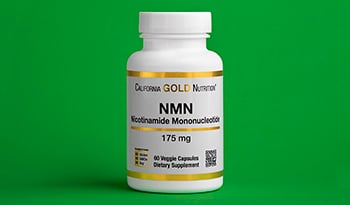3 Suplemen untuk Menyokong Kesihatan Paru-paru

Hampir semua kita mengambil kemampuan untuk mendapatkan nafas udara yang baik sebagai perkara biasa. Terutama bagi mereka yang menderita sinusitis kronik, asma, bronkitis, penyakit paru-paru obstruktif kronik, dan penyakit lain saluran pernafasan, nafas udara yang mudah sangat dihargai.
penyebab Masalah Pernafasan
Orang dengan keadaan pernafasan dan paru-paru sering menghadapi lebih banyak masalah semasa musim sejuk atau ketika mereka terdedah kepada lebih banyak pencemaran udara atau asap. Pada musim sejuk, bukan sahaja peningkatan pendedahan kepada virus yang memberi kebimbangan kepada mereka yang menghadapi cabaran pernafasan, tetapi peningkatan pernafasan udara dalaman kering dan hangat yang dikitar semula. Udara ini mengeringkan membran saluran udara. Akibatnya, kandungan air lendir dikurangkan, menjadikannya lebih tebal dan lebih sukar untuk dibersihkan dari saluran udara.
Lendir yang menebal dan kurang berfungsi ini menjadi tempat pembiakan mikroorganisma, yang boleh meningkatkan risiko kesesakan sinus, bronkus, atau paru-paru dan/atau jangkitan. Pelembap boleh membantu menjaga kelembapan saluran udara, tetapi memastikan penghidratan yang mencukupi dari dalam ke luar adalah penting untuk kandungan air yang betul di lapisan saluran pernafasan kita.
Jelas sekali, kekal terhidrat dengan baik dengan memakan air yang mencukupi adalah penting untuk mengekalkan kelembapan di saluran udara. Di samping itu, terdapat produk semulajadi yang selamat dan berkesan yang dapat meningkatkan kandungan kelembapan saluran udara. Peningkatan kandungan air saluran udara dari dalam ke luar membawa kepada rembesan lendir yang lebih sihat, dan akibatnya, membawa kepada pernafasan yang lebih mudah.
Nutrien Penting untuk Kesihatan Pernafasan
Lapisan saluran pernafasan dan paru-paru terdiri daripada sel khusus dan penghalang lendir. Sel-sel ini memerlukan bekalan nutrien penting yang berterusan agar mereka dapat melaksanakan peranan penting mereka. Mereka bukan sahaja memberikan peranan struktur dalam melindungi daripada pencemaran dan jangkitan, sel-sel ini juga memainkan peranan pembuatan. Sel-sel ini menghasilkan mucin dan bahan pelindung lain yang melapisi saluran udara yang penting dalam memerangi virus dan organisma berbahaya yang lain.
Untuk memastikan pengambilan yang mencukupi bagi semua mikronutrien penting yang penting untuk fungsi sel-sel ini, pertimbangkan untuk mengambil formula vitamin dan mineral berganda. Pastikan anda mengambil multi yang memberikan sekurang-kurangnya tahap pengambilan makanan yang disyorkan untuk nutrien utama untuk kesihatan sel-sel epitelium saluran udara dan paru-paru.
Khususnya, vitamin A, C, dan D, beta-karoten, vitamin B, selenium, dan zink. Nutrien ini sangat penting untuk kesihatan saluran pernafasan dan paru-paru.
3 Suplemen untuk Sistem Pernafasan
Tiga produk semula jadi yang paling berguna yang memberikan sokongan kuat untuk kesihatan paru-paru dan pernafasan adalah N-acetylcysteine, ivy extract, dan enzim protease.
Bahan-bahan ini boleh digunakan secara individu atau digabungkan untuk keberkesanan yang lebih besar.
- N-acetylcysteine harus digunakan oleh mereka yang mengalami cabaran pernafasan atau terdedah kepada pencemaran udara atau asap rokok.
- Ekstrak Ivy berguna untuk mereka yang mengalami kesukaran bernafas akibat kerengsaan pada saluran pernafasan.
- Enzim protease (bromelain dan serrapeptase) berguna apabila lendir tebal, tetapi kuantiti tidak mencukupi.
Formula vitamin dan mineral berganda yang membekalkan tahap nutrien utama yang disyorkan juga harus dipertimbangkan.
N-Acetylcysteine dan Faedah Kesihatan Pernafasan
N-acetylcysteine (NAC) adalah turunan asid amino yang berlaku secara semula jadi, cystein. NAC mempunyai sejarah penggunaan yang luas dalam perubatan konvensional untuk menyokong fungsi saluran pernafasan dan paru-paru semasa keadaan paru-paru akut dan kronik, termasuk emfisema, bronkitis, asma, dan fibrosis sista.
NAC berfungsi pada menipis lendir dengan secara langsung memisahkan hubungan sulfur yang mengikat mukoprotein bersama-sama dalam lendir tebal. Dengan memecahkan pautan ini, NAC mengurangkan ketebalan serta “kelikatan” yang berlebihan (kelikatan) apabila rembesan saluran pernafasan menjadi terlalu tebal dan melekit. Hasil daripada membantu membersihkan saluran udara, NAC meningkatkan kesihatan pernafasan dan fungsi paru-paru seperti yang dinyatakan dengan mengurangkan batuk dan meningkatkan ketepuan oksigen dalam darah.1,2
NAC boleh membantu dalam gangguan saluran paru-paru dan pernafasan dengan membantu memperbaiki struktur dan fungsi lapisan mucin. Manfaat ini amat penting dalam menyokong fungsi saluran pernafasan semasa cabaran seperti bronkitis kronik dan penyakit paru-paru obstruktif kronik (COPD).
Dalam analisis terperinci mengenai 39 ujian, telah disimpulkan bahawa NAC oral mengurangkan risiko eksaserbasi (semakin teruk) dan memperbaiki gejala pada pesakit dengan bronkitis kronik berbanding dengan plasebo.2
Selain kesannya sebagai mukolitik, NAC dapat meningkatkan pembuatan glutathione—antioksidan utama untuk seluruh saluran pernafasan dan paru-paru.3 Glutathione sangat penting dalam menyokong kesihatan pernafasan terhadap pencemaran. Apabila udara tercemar, asap, atau sebatian lain yang merosakkan diambil semasa bernafas, sebahagian besarnya terpulang kepada glutathione untuk menyekat kerosakan dan kerengsaan yang boleh disebabkan oleh sebatian ini pada paru-paru dan saluran udara.
Dos biasa untuk NAC untuk mengurangkan lendir menebal adalah 200 hingga 400 mg tiga kali sehari.
Ekstrak Ivy dan Kerengsaan Saluran Pernafasan
Ekstrak Ivy mempunyai sejarah penggunaan yang panjang dalam menyokong kesihatan pernafasan pada orang yang berurusan dengan asma dan COPD. Penyelidikan klinikal yang ketara telah mengesahkan penggunaan sejarah ivy dalam mempromosikan kesihatan paru-paru dan pernafasan dengan menunjukkan ivy mempunyai keupayaan untuk mengurangkan kekejangan bronkus dan meningkatkan rembesan pernafasan.4-7
Beberapa kajian buta ganda menunjukkan bahawa ekstrak ivy meningkatkan fungsi paru-paru dan saluran pernafasan. Sebagai contoh, dalam satu kajian buta ganda, 25 kanak-kanak berumur 10 hingga 15 tahun dengan asma menunjukkan peningkatan kapasiti paru-paru dengan ekstrak ivy. Penambahbaikan terbukti relevan secara klinikal dan signifikan secara statistik tiga jam selepas kanak-kanak mengambil ekstrak ivy. Menjelang hari ke-10 rawatan, kesannya lebih mengagumkan.4
Kajian yang lebih baru dengan ekstrak ivy melihat keupayaannya untuk mengurangkan pengeluaran lendir hidung dan rembesan pada orang yang pulih dari pembedahan hidung. Selalunya selepas pembedahan hidung, lendir menjadi tebal dan berlebihan, yang boleh menetapkan tahap jangkitan. Kajian ini merangkumi 70 pesakit yang menjalani pembedahan hidung yang dibahagikan kepada dua kumpulan yang sama. Kumpulan yang dirawat dengan sirap ekstrak daun ivy kering standard mempunyai rembesan hidung yang jauh lebih sedikit dan tidak mengalami jangkitan tempatan. Dalam kumpulan kawalan, jangkitan tempatan terbukti pada lima pesakit (14.29%) dan terapi antibiotik diperlukan.7 Anda tidak perlu menjalani pembedahan hidung untuk memanfaatkan kesan ekstrak ivy ini. Ia berguna apabila saluran hidung merembeskan lendir secara berlebihan.
Dos biasa untuk ekstrak serbuk kering adalah 100 mg dua kali sehari.
Enzim Protease dan Lendir
Enzim protease sering digunakan dalam formula pencernaan untuk membantu pemecahan protein makanan, tetapi ia juga memecah lendir tebal atau berlebihan. Protease membelah ikatan antara asid amino tertentu dengan pada dasarnya menambah air atau menghidrolisis ikatan.
Apabila diambil semasa perut kosong jauh dari makanan, protease diserap ke dalam aliran darah untuk memberikan kesan sistemik termasuk kesan pada lendir. Beberapa protease tertentu, seperti bromelain dan serrapeptase, telah menunjukkan manfaat dalam meningkatkan komposisi, ciri fizikal, dan fungsi lendir. Mereka sangat berguna pada bila-bila masa lendir terlalu tebal.
Bromelain dan serrapeptase mengurangkan ketebalan lendir sementara pada masa yang sama meningkatkan pengeluaran lendir serta meningkatkan pembersihan lendir dari saluran pernafasan secara dramatik. Kesan bersih adalah pengeluaran lebih banyak lendir yang berkesan dalam melindungi saluran udara dari kerengsaan dan penyumbatan. Bromelain dan serrapeptase berguna pada bila-bila masa saluran udara terjejas oleh rembesan lendir tebal atau berlebihan.8-12
Bromelain
Bromelain merujuk kepada sekumpulan enzim yang mengandungi sulfur yang mencerna protein (enzim proteolitik atau protease) yang diperoleh daripada tumbuhan nanas. Dos biasa untuk bromelain untuk petunjuk pernafasan adalah 250 hingga 750 mg tiga kali sehari antara waktu makan.
Serrapeptase
Serrapeptase adalah enzim yang sebenarnya dihasilkan daripada bakteria bermanfaat, Serratia marcescens, yang tinggal di usus cacing sutera. Cacing sutera menggunakan kesan kuat enzim ini untuk memecahkan kepompong dan membebaskan dirinya sebagai rama-rama dewasa yang berubah. Sebagai suplemen makanan, dos serrapeptase didasarkan pada aktiviti enzim dalam bentuk unit unit serrapeptase atau SPU. Dos untuk menyokong kesihatan pernafasan dan paru-paru adalah 40,000 hingga 100,000 unit sehingga tiga kali sehari.
Ubat Tambahan untuk Kesihatan Pernafasan
Untuk kesesakan sinus, cuba pengairan hidung dengan air garam menggunakan periuk Neti. Apabila digunakan dengan betul, air masin akan mengalir melalui rongga hidung dan melegakan gejala kesesakan. Penggunaan harian disyorkan semasa episod akut, setiap hari untuk keadaan kronik.
Semburan hidung yang menampilkan bahan semula jadi, seperti xylitol atau ubat homeopati, juga boleh membantu menjaga lembap membran.
Untuk kesesakan bronkus dan paru-paru, serta untuk jangkitan sinus yang lebih dalam, cuba saliran postural. Ini adalah terapi lama yang sederhana yang berfungsi dengan ajaib. Sapukan pad pemanasan atau botol air panas ke dada sehingga 20 minit. Kemudian lakukan saliran postural dengan berbaring menghadap ke bawah dengan separuh bahagian atas badan dari katil, menggunakan lengan bawah sebagai sokongan. Kekalkan kedudukan selama lima hingga 15 minit, sementara anda batuk dan berkerap ke dalam lembangan atau surat khabar di atas lantai. Lakukan ini dua kali sehari apabila terdapat kesesakan saluran udara yang ketara.
Rujukan:
- Pei Y, Liu H, Yang Y, et al. Aktiviti Biologi dan Aplikasi Lisan Potensi N-Acetylcysteine: Kemajuan dan Prospek. Oksid Dengan Cell Panjang. 2018; 2018:2835787.
- Elbini Dhouib I, Jallouli M, Annabi A, et al. Kajian kecil mengenai N-acetylcysteine: Dadah lama dengan pendekatan baru. Ilmu Kehidupan 2016; 151:359-363.
- Santus P, Corsico A, Solidoro P, Braido F, Di Marco F, Scichilone N. Tekanan oksidatif dan sistem pernafasan: penilaian semula farmakologi dan klinikal N-acetylcysteine. COPD 2014 Disember; 11 (6): 705-1.
- Hofmann D, Hecker M, Völp A. Keberkesanan ekstrak kering daun ivy pada kanak-kanak dengan asma bronkial--kajian semula ujian terkawal rawak. Fitomedicine. 2003 Mac; 10 (2-3): 213-220.
- Hecker M, Runkel F, Voelp A. Rawatan bronkitis kronik dengan kajian pengawasan pasca pemasaran ekstrak khas daun ivy - multicenter pada 1,350 pesakit. Forsch Komplementarmed Kelas Semulajadi 2002 Apr; 9 (2) :77-84.
- Kemmerich B, Eberhardt R, Stammer H. Keberkesanan dan toleransi gabungan ekstrak cecair herba thyme dan daun ivy dan plasebo yang sesuai pada orang dewasa yang menderita bronkitis akut dengan batuk produktif. Percubaan klinikal prospektif, dua buta, terkawal plasebo. Penyelidikan Arzneimittel.2006; 56 (9) :652-60.
- Savović S, Paut Kusturica M, Kljajić V, Buljčik Čupić M, Jovančević L, Pavlović V, Rašković A. Pengaruh ekstrak daun ivy kering standard pada kadar rembesan hidung selepas penyingkiran pembungkusan hidung pasca septoplasti. Braz J Otorhinolaryngol. 2019 Nov-Disember; 85 (6): 685-689.
- Maurer HR. Bromelain: biokimia, farmakologi dan penggunaan perubatan. Cell Mol Life Sciences 2001 Ogos; 58 (9): 1234-45.
- Ryan RE. Penilaian klinikal dua buta terhadap bromelain dalam rawatan sinusitis akut. Sakit kepala 1967; 7:13-17.12. Majima Y, Inagaki M, Hirata K, et al. Kesan enzim proteolitik yang diberikan secara lisan pada keanjalan dan kelikatan lendir hidung. Gerbang Otorhinolaryngol 1988; 244:355-359.
- Bhagat S, Agarwal M, Roy V. Serratiopeptidase: tinjauan sistematik terhadap bukti sedia ada. Surg Int J. 2013; 11 (3): 209-217.
- Nakamura S, Hashimoto Y, Mikami M, et al. Kesan enzim proteolitik serrapeptase pada pesakit dengan penyakit saluran udara kronik. Respirologi 2003; 8:316-320.
- Mazzone A, Catalani M, Costanzo M, et al. Penilaian Serratia peptidase dalam keradangan akut atau kronik patologi otorhinolaryngologi: percubaan rawak multicenter, buta dua kali berbanding plasebo. J Int Med Res 1990; 18:379-388.
PENAFIAN:Hab Kesejahteraan ini tidak berhasrat untuk memberikan diagnosis...













































































 Kandungan
Kandungan














